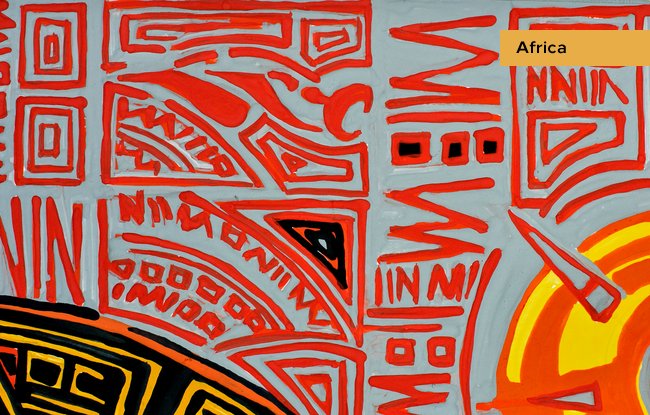- Arbitration
- Banking & Finance
- Capital Markets
- Commercial
- Competition
- Construction & Infrastructure
- Corporate / Mergers & Acquisitions
- Corporate Services
- Corporate Structuring
- Digital & Data
- Dispute Resolution
- Employment & Incentives
- Family Business & Private Wealth
- Innovation, Patents & Industrial Property (3IP)
- Insurance
Find a Lawyer
Book an appointment with us, or search the directory to find the right lawyer for you directly through the app.
Find out more
Level Up: Unlocking Financial Potential In The Middle East
Welcome to this edition of Law Update, where we focus on the ever-evolving landscape of financial services regulation across the region. As the financial markets in the region continue to grow and diversify, this issue provides timely insights into the key regulatory developments shaping banking, investment, insolvency, and emerging technologies.

Eyes on 2026
Legal Updates in MENA
2025 is set to be a game-changer for the MENA region, with legal and regulatory shifts from 2024 continuing to reshape its economic landscape. Saudi Arabia, the UAE, Egypt, Iraq, Qatar, and Bahrain are all implementing groundbreaking reforms in sustainable financing, investment laws, labor regulations, and dispute resolution. As the region positions itself for deeper global integration, businesses must adapt to a rapidly evolving legal environment.
Our Eyes on 2025 publication provides essential insights and practical guidance on the key legal updates shaping the year ahead—equipping you with the knowledge to stay ahead in this dynamic market.
Read MoreThe leading law firm in the Middle East & North Africa region.
A complete spectrum of legal services across jurisdictions in the Middle East & North Africa.
-
Client Solutions
-
Country Groups
-
Practices
- All Practices
- Banking & Finance
- Capital Markets
- Commercial
- Competition
- Construction & Infrastructure
- Corporate / Mergers & Acquisitions
- Corporate Services
- Corporate Structuring
-
Sectors
Today's news and tomorrow's trends from around the region.
17 offices across the Middle East & North Africa.
Our Services
 Back
Back
-
Client Solutions
-
Country Groups
-
Practices
- All Practices
- Banking & Finance
- Capital Markets
- Commercial
- Competition
- Construction & Infrastructure
- Corporate / Mergers & Acquisitions
- Corporate Services
- Corporate Structuring
- Digital & Data
- Dispute Resolution
- Employment & Incentives
- Family Business & Private Wealth
- Innovation, Patents & Industrial Property (3IP)
- Insurance
- Intellectual Property
- Legislative Drafting
- Private Client Services
- Private Equity
- Private Notary
- Projects
- Real Estate
- Regulatory
- Tax
- Turnaround, Restructuring & Insolvency
- White Collar Crime & Investigations
-
Sectors
Joined Up Thinking – Consolidation of arbitration proceedings in the Middle East
 1 min 18 sec
November 18, 2025 (Edited)
1 min 18 sec
November 18, 2025 (Edited)
International Commercial Arbitration in the Middle East: A Growing Preference for Cross-Border Dispute Resolution
International commercial arbitration continues to gain momentum in the Middle East as a preferred means of resolving disputes, expanding well beyond its traditional association with the construction sector. This shift is driven by the region’s increasingly diverse and international investor base, rapidly evolving economies, the emergence of new industry sectors, and the presence of well-established arbitral institutions.
Another key factor underpinning this growth is the adoption of both civil law and common law frameworks across key jurisdictions, such as the DIFC and ADGM. These developments collectively enhance the Middle East’s reputation as an attractive destination for investment and for agreeing to arbitrate commercial disputes.
Notably, many Middle Eastern states have adopted the UNCITRAL Model Law either in whole or in part, signalling a regional commitment to ensuring neutral, efficient, and enforceable dispute resolution mechanisms. This provides a robust alternative to the traditional three-tier civil judicial systems that remain common in many jurisdictions across the region.
International commercial arbitration offers several widely valued advantages: party autonomy, confidentiality, procedural flexibility, and the ability to appoint arbitrators with specialised expertise. These features carry substantial weight for investors and commercial entities seeking effective and predictable outcomes.
Moreover, investor confidence is further reinforced by the widespread accession of Middle Eastern states to the 1958 New York Convention on the Recognition and Enforcement of Foreign Arbitral Awards. Alongside various bilateral treaties, this ensures that arbitral awards issued in the region are broadly enforceable internationally — a crucial cornerstone of modern cross-border commerce.
Written by
Next Article
Written by
Newsletter
To learn more about our services and get the latest legal insights from across the Middle East and North Africa region, subscribe below.

















